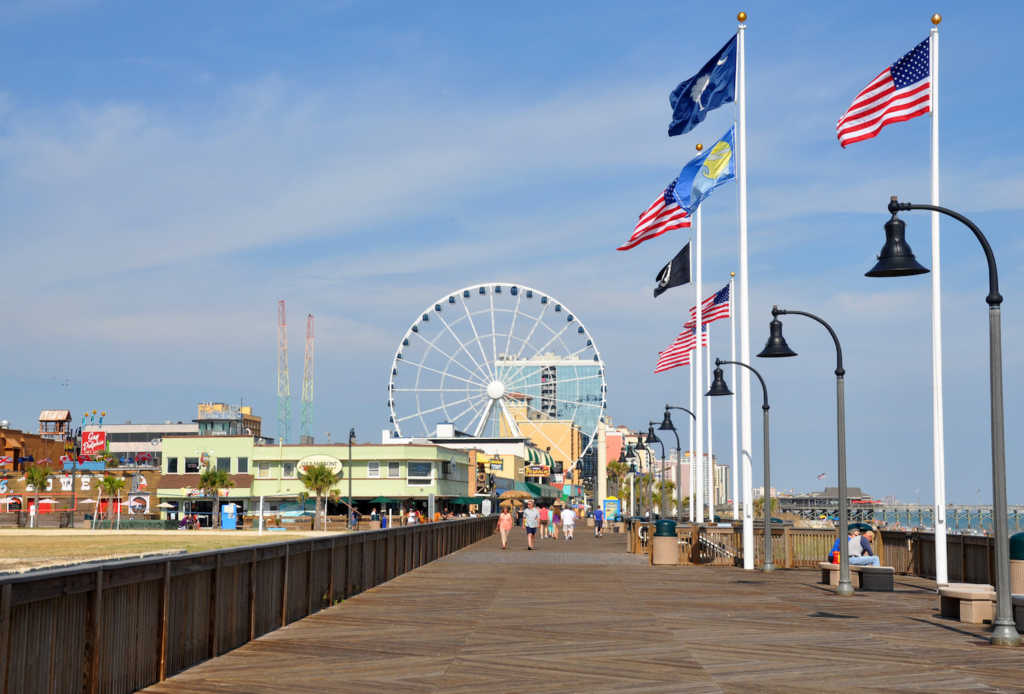In Myrtle Beach, they live by the golden rule.
The popular vacation spot issued 289 citations in 2017 for swearing, earning the city $22,161 in additional revenue, The Sun News reported.
Those caught by police using profane, four-letter words inside Myrtle Beach city limits could be legally required to pay a fine of up to $500 or face 30 days in jail — or both, according to city spokesman Mark Kruea.
“We encourage everyone to avoid violating this ordinance by speaking to others with the same respect and kindness you deserve,” Myrtle Beach Police Lt. Bryan Murphy said.
There are, however, stipulations grounding the regulation. According to the exact code, it is “unlawful for any person within the city limits to intentionally engage in any act or conduct inciting public disorder or a breach of the peace.”
The ordinance states an individual violates the law if he or she uses profane language to incite violence or curses while “grossly intoxicated.”
While some have argued such a regulation is unconstitutional, claiming verbiage — even if profane — is protected by the First Amendment, the U.S. Supreme Court ruled many years ago that some speech can, in fact, be regulated.
Fourth Grader Commits Suicide After Facing Bullying From Classmates
In 1942, the high court decided in Chaplinsky v. New Hampshire that there does exist a “well-defined and narrowly limited classes of speech” that the government can legally regulate and censor. Such examples include “fighting words” and phrases that “by their very utterance inflict injury or tend to incite an immediate breach of the peace.”
Kruea admitted, however, that the city is trying to “legislate behavior,” an admittedly difficult task.
“You’re trying to legislate behavior, which is a tough thing to do,” he said. “You’re trying to establish what’s acceptable and what’s not and provide that guidance for the public.”



